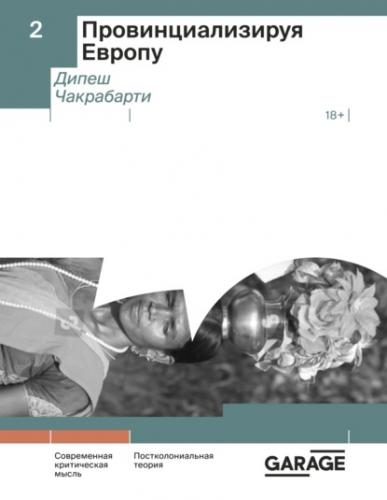61
Как сказала Меган Моррис в предисловии к работе Сакаи: «Сакаи объединяет с другими теоретиками концепция перевода как практики, создающей различия из несоизмеримости (скорее так, нежели эквивалентность из различий)». Sakai N., Translation and Subjectivity: On “Japan” and Cultural Nationalism. Minneapolis: University of Minnesota Press. 1997. P. 13. См. также эссе Политика перевода / Gayatri Chakravorty Spivak. Outside in the Teaching Machine. London and New York: Routledge. 1993. P. 179–200; Rafael V. L., Contracting Colonialism, chapter 1, “The Politics of Translation”; Asad T., “The Concept of Cultural Translation in British Anthropol ogy” в его: Genealogies of Religion, p. 171–199; Bhabha H. K., “How Newness Enters the World: Postmodern Space, Postcolonial Times and the Trials of Cultural Translation” в его: The Location of Culture, p. 212–235.
62
Я благодарю Хоми Бхабху за это выражение. Отношения между аналитической и герменевтической традициями подробно разъясняются в Palmer R. E., Hermeneutics: Interpretation Theory in Schleirmacher, Dilthey, Heidegger and Gadamer. Evanston: Northwestern University Press. 1969. Тем не менее не следует догматически держаться за это разделение.
63
Postcoloniality and the Artifice of History: Who Speaks for “Indian” Pasts? / Representations №37. Winter 1992. P. 1–26.
64
Ницше Ф. О пользе и вреде истории для жизни. Соч. В 2 тт. Т. 1. М.: Мысль, 1990.
65
См. мою статью Reconstructing Liberalism? Notes toward a Conversation between Area Studies and Diasporic Studies / Public Culture №10, no. 3. Spring 1998. P. 457–481.
66
Broomfield J. H., The Forgotten Majority: The Bengal Muslims and September 1918 / D. A. Low ed., Soundings in Modern South Asian History. London: Weidenfeld and Nicolson. 1968. P. 196–224.
67
Aram Veeser H., ed., The New Historicism Reader. New York and London: Routledge. 1994.
68
Iggers G. G., The German Conception of History: The National Tradition of Historical Thought from Herder to the Present. Hanover, N. H.: University Press of New England. 1983.
69
Hacking I., Two Kinds of ‘New Historicism’ for Philosophers / Ralph Cohen and Michael S. Roth eds., History and… Histories within the Human Sciences. Charlottesville and London: University of Virginia Press. 1995. P. 298.
70
Mandelbaum M., History, Man and Reason. Baltimore. 1971. P. 42 цит. в Ankersmit F. R., Historicism: An Attempt at Synthesis / History and Theory №36. October 1995. P. 143–161.
71
Я опираюсь на Ankersmit, Historicism; Meinecke F., Historism: The Rise of a New Historical Outlook. London: Routledge and Kegan Paul. 1972; White H., Metahistory: The Historical Imagination in Nineteenth-Century Europe. Baltimore: Johns Hopkins University Press. 1985, и статью Дройзена “Historik: Historical Writing as a Bourgeois Science” в его: The Content of the Form: Narrative Discourse and Historical Representation. Baltimore: Johns Hopkins University Press. 1990. P. 83–103; Ranke L. von, Preface: Histories of Romance and Germanic Peoples и A Fragment from the 1830s / Fritz Stern, ed., The Varieties of History: From Voltaire to the Present. New York: Meridian Books. 1957. P. 55–60; Hans Meyerhoff, ed., The Philosophy of History in Our Own Time: An Anthology. New York: Doubleday Anchor Books. 1959, см.: Introduction, p. 1–24 и параграф “The Heritage of Historicism”; Hamilton P., Historicism. London and New York: Routledge, 1996. Чрезвычайно полезным оказалось обсуждение историцизма в работе Джеймса Чандлера England in 1819. Я принял решение не обсуждать понимание «историцизма» Карлом Поппером, поскольку его использование этого термина признано слишком своеобразным.
72
«История – предмет конструкции, место которой не пустое и гомогенное время, а время, наполненное „актуальным настоящим“». Беньямин В. О понятии история // Учение о подобии. Медиаэстетическое произведение. Москва: РГГУ. С. 246. Критику Беньямина за отсутствие ответа на вопрос, почему хронология сохраняет свою значимость для историков, см. в Kracauer S., History: The Last Things before the Last. Princeton: Markus Wiener. 1995, особенно шестую главу.
73
Inden R., Orientalist Constructions of India / Modern Asian Studies №20, no. 3. 1986. P. 445.
74
Термином «гиперреальный» я обязан Жану Бодрийяру, но использую я его иначе. См. Бодрийяр Ж., Симулякры и симуляции. М. Р�
